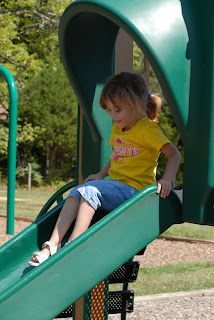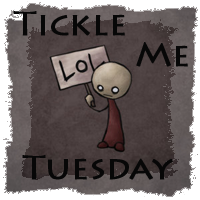However here is one that is both simple and well relatively cheap. I was reading an article about how photographers (mostly the press) were modifying their flashes to get the most of them.
This has of course spawned several accessories you can buy for the flash but well we can't all go around spending $$$ all the time on things like this.
The good news is that I have found a good way to achieve some good results hardly using any of the good ole $$ :-)
Hope it doesn't sound like a kids show on tv but all you need is some construction paper and scissors... just about it.
The idea I was reading about is how you can swivel and rotate your external flash. This is a good thing since you can avoid the direct flash and bounce it off a ceiling, wall or just about whatever is around.
This makes the light spread out and get a softer photo with a better light distribution overall.
However if you were to bounce the light off the ceiling then it would cast shadows under the chin (even though they are nice and soft) and a little fill light would be nice to make the eyes and all come out a bit better.
The good ole photographers would tape on a card of some type to the flash which would reflect some of the light from the flash and direct it directly onto the subject in front on them while the main portion of the light would continue to be bounce off a ceiling and light up behind the subject. This giving a really good light distribution and great photos.
This is why flashes like the Nikon SB-800 (that I have) has a card build into the head. However this is way too small to do justice to any of the old card and tape photos...
Anyway. Here is the flash mounted on the camera and about a 60 degree angle which will bounce the light off the ceiling (ps. doesn't work outdoors) and give a nice distribution of light in the room.

It does however not make the subject stand out too much. So To recreate the old "card trick" I was thinking about how to achieve that and well turns out to be pretty simple ;-)
Get out the construction paper and cutout an official ppp (professional photographer of podunk) flash modifier and raid the kitchen to find a suitable attachment mechanism...

Attaching the modifier to the external flash like this (yeah I know it's not the best photos but hey illustrational purpose only).
 |  |
Putting the new flash modifier in action (this is the good part ;-)




Now that I don't want you to sit with an empty feeling of where in the world you can get a hold of such a marvelous device... I bring you here a template for making your very own flash modifier :-)
Click this image and print it on construction paper. Cut along the outer lines and fold along the inner ones. That's about it :-) then start shooting...







































